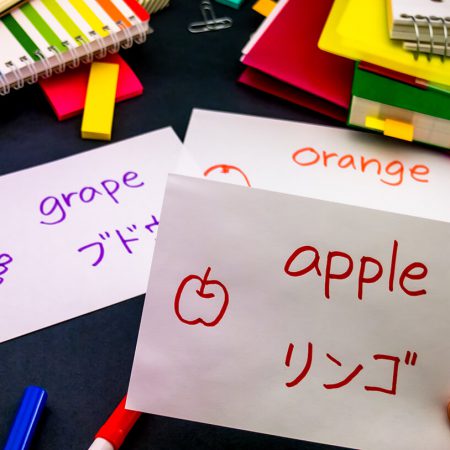5 Things to Look for When Choosing a Japanese Language School

Studying in a Japanese language school in Japan may seem like a leap of faith to many foreigners. After all, you’d be leaving your home for a new country with an entirely different language and writing systems! If you’ve exhausted all your resources to learn Japanese in your home country, you’ll want to go beyond Japanese books and films and actually experience Japan. Who’s to stop you but yourself?
Table of contents
5 Things to Look for When Choosing a Japanese Language School

Imagine studying a language in a place where you can actively practice the lessons you learn. It just makes sense for Japan to be the most ideal environment to study Japanese. You’ll have plenty of exposure to all things Japanese, from storefronts, road signs, flyers, newspapers, radio voices, to the people around you, and everything between and beyond!
But out of all the schools with unique curricula, how do you decide on the perfect school? Surely, you have reasons for migrating to Japan for your language studies. With this article, we hope to guide you in narrowing down your Japanese language schools of choice. Take these tips to decide on your best option:
Find Your Purpose

Recall the moment you finally put your foot down and resolved to study Japanese in Japan. What made you make that decision? Did you want to learn Japanese to use in casual conversations? Perhaps you wanted to pursue a career in Japan and learning the language appeared as the first step. Your determination to fly to Japan, live in the country and invest your time, money, and efforts in learning the language should be the biggest influence in your selection process.
The thought of making a life-changing decision based on a singular purpose might be overwhelming. But of course, your initial goals may change once you’re actually living and studying in Japan. Most Japanese language students spark their primary interest through anime and manga. While this may motivate you in the beginning, you might be surprised to discover more opportunities that Japanese language proficiency brings you!
Still, opportunities could be related to your initial goals. For example, your interest in anime could open doors for you in the Japanese animation industry. You might even enjoy your experience in a language school and find yourself wanting to become a teacher to other foreigners like yourself. There are countless possibilities, but it all boils down to your end goal. Once you understand what you truly want to get out of studying in a foreign country, you’ll have a better idea of which Japanese language school to enter.
Consider Learning Intensity

What kind of student are you? What’s your ideal learning environment? How quickly do you learn? These are some questions you need to ask yourself to find the perfect Japanese language school. This also ties with your purpose for studying. If you want to learn Japanese for casual conversation, perhaps you’d prefer a school that incorporates culture into its formal curriculum.
Most government-accredited Japanese language schools are designed to prepare foreign students for taking the Japanese Language Proficiency Test. These schools also train their students for employment in Japan. Classes in these schools are definitely fast-paced and will expect a lot of homework on your part. If you aim for a career in Japan, you’ll have to go through intensive language training!
You will need to make some serious self-assessment of your academic habits. If you learn better in a classroom setting, be sure you can catch up with the rest of the class. Some schools have curricula designed to accommodate non-Japanese Asians like Korean and Taiwanese students. If you’re among these students, you might notice similar teaching styles and language structures from your home countries. You’d breeze through the intense lessons!
A lot of Japanese language schools that cater to Westerners have noted that students prefer to take casual classes. If you like the idea of studying Japanese with a tight-knit group, much like a private tutor situation, then you should consider looking for schools that offer such courses.
Think About How Long You Would Study

Once you identify how much new information you can process, consider for how long you’re willing to gain that much knowledge. Typical Japanese schools offer language courses for long-term students. You would be taking classes for at least half a year to multiple years. However, there are some special schools like the JaLS Group where you have the option to study in Japan for a minimum of a single week!
Imagine getting a taste of the Japanese student life before completely immersing in the lifestyle. With campuses in Sapporo, Kyoto, and Tokyo, JaLS Group has exceptional facilities like bookstores, cafés, and co-working spaces on top of the basic facilities of most Japanese language schools. All of these facilities make a global environment possible and accessible for the convenience of foreign students.
Attending classes all week can be exhausting, even if you are pursuing a passion. This is the same case in any country. Between classes, you still want to enjoy your time in Japan to keep yourself motivated to study Japanese. JaLS Group offers an abundance of cultural activities for memorable experiences outside of classes! Even for just a week, you’ll surely make the most of your studies abroad.
Pick a City

We’re pretty sure you have some ideal locations in Japan to live in. Where you want to study is another point of interest in finding a school. If you look up different cities you’d want to live in, you could find your perfect school much faster!
If your primary goal for learning Japanese is to get employed in Japan, you can expect a lot of opportunities in Tokyo. You wouldn’t even have to learn the language, per se. Now that Japan is really expanding its international influence with globalization, you can find signs and instructions printed in English, making Tokyo easy to navigate as a foreigner. Still, language schools in the capital offer the best education that caters to foreign students.
Language schools in Osaka have great opportunities as well. ECC Kokusai College of Foreign Languages has exchange programs with Japanese students. This can truly benefit your language studies since you’ll be speaking and developing your skills on top of merely studying the subjects! If Japanese higher education and verbal expression are in line with your goals, consider schools in this city.
There are also promising schools outside popular cities like the Fukuoka Foreign Language College. Fukuoka itself is growing economically and making moves toward globalization. The city has really been pushing to create a startup ecosystem. It is even making investor visas more accessible to entice foreigners to begin their Japanese studies in Fukuoka! Since they’re doing their best to catch up with bigger cities, you can expect language schools here to really focus their efforts on their students.
Secure Your Budget

Honestly, this shouldn’t be a problem. You might think that this should be a big priority, but you must remember that you get what you pay for! Migrating and living in a foreign country is obviously expensive, and language schools tend to have similar price ranges, to begin with. You might as well get the best quality education and budget your expenses around the tuition.
Securing your budget also aligns with the previous tips. Simply put, there are expensive and inexpensive schools. Expensive schools tend to have much larger classes where you’ll have access to high-end facilities. Inexpensive schools may be lenient with their staff-hiring process and focus on the basics of the Japanese language for casual learners. It all depends on your goals!
Conclusion
The best tip to find the perfect Japanese language school is to reflect on your goals for studying in Japan. Identify your capacity and determine how far you are willing to push yourself to meet those goals. Remember that you are investing in your future, so you have to make an informed decision when finally selecting the perfect language school in Japan that meets your needs. Good luck!












Leave a Reply